Creating good content is just one part of SEO success. If you want your content to rank well on search engines, using the right number of keywords is important. Too few keywords might confuse search engines about your topic, while too many can lead to keyword stuffing which can hurt your rankings.
To keep the right balance, it helps to use a keyword density checker. These tools show how often your keywords appear in your content, so you can adjust them as needed. We’ll explain what keyword density is and how keyword density checkers can help you. We will explain why it is important and look at the 7 best tools to check keyword density. These tools can help you improve your content strategy and make it work better.
What is Keyword Density?
Keyword density means how many times a keyword appears in your content compared to the total number of words. It’s expressed as a percentage.
Formula:
Keyword Density (%) = (Number of times the keyword appears / Total word count) × 100
For example:
Keyword: best coffee
Word Count: 200 words
Keyword Appearances: 3 times
Keyword Density (%) = (3 / 200) × 100 = 1.5%
This percentage is good and supports better performance of your content in search engines.
Why is Keyword Density Important for SEO?
Using the right amount of keywords is important for strong on-page SEO. Here’s why it matters:
- Boosts SEO Results: Using the right keywords helps search engines understand your content better, which can lead to higher rankings
- Makes Content Easy to Read: When keywords are used naturally, the content stays clear and user-friendly, making it easier for people to understand.
- Avoids Penalties: Overusing keywords (known as keyword stuffing) can hurt your rankings.
- Supports Better Content Structure: It ensures your content remains focused and relevant.
It helps you find out how often your keywords are used in the content. This helps you adjust them before publishing to improve SEO and keep your content clear and high quality.
Top Keyword Density Checkers to Boost Your Content’s SEO Power
Here are some of the best tools you can use to monitor and optimise keyword usage in your content:
1. SEO Review Tools – Keyword Density Checker (Free)
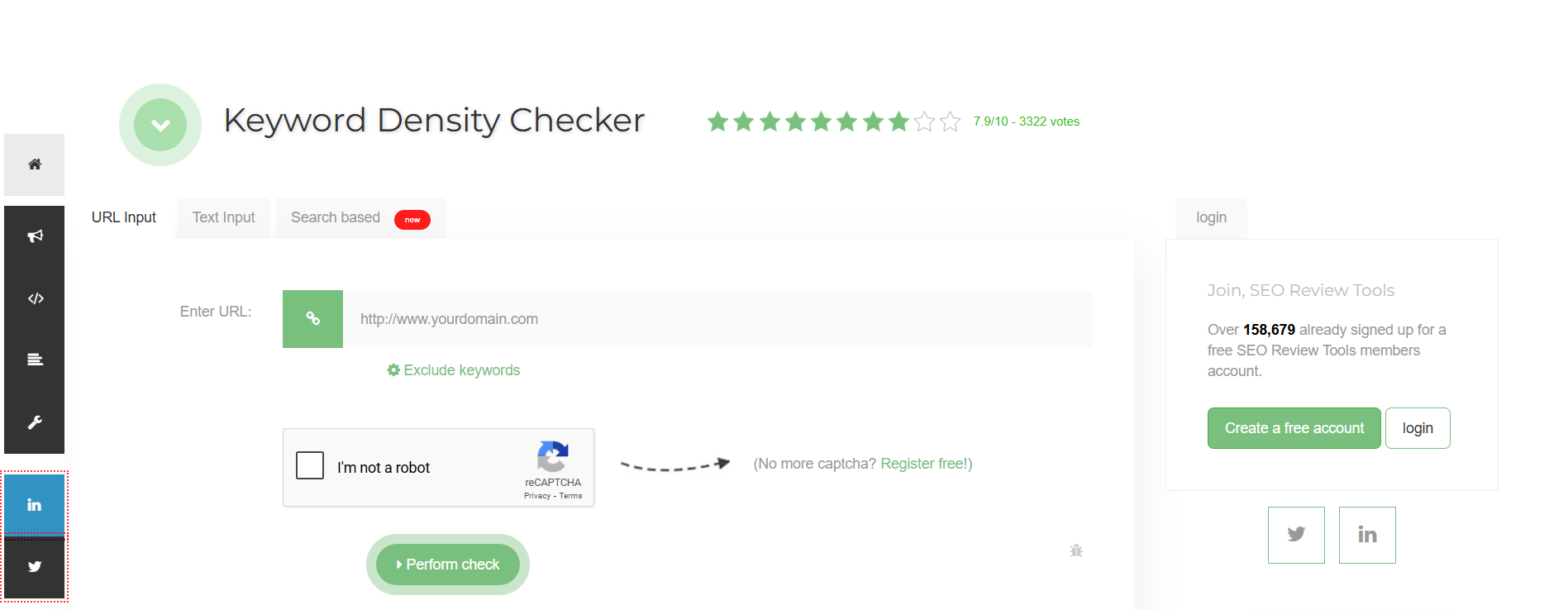
This free online tool is known for its accuracy and simplicity.Just paste your text or URL into the tool, and it will instantly show how often keywords appear and their percentage in your content. It highlights the most used words and phrases, making it ideal for content audits.
Features:
- No sign-up required
- Supports URL and text input
- Clear data on 1, 2, and 3-word phrases
2. Small SEO Tools – Keyword Density Checker (Free)
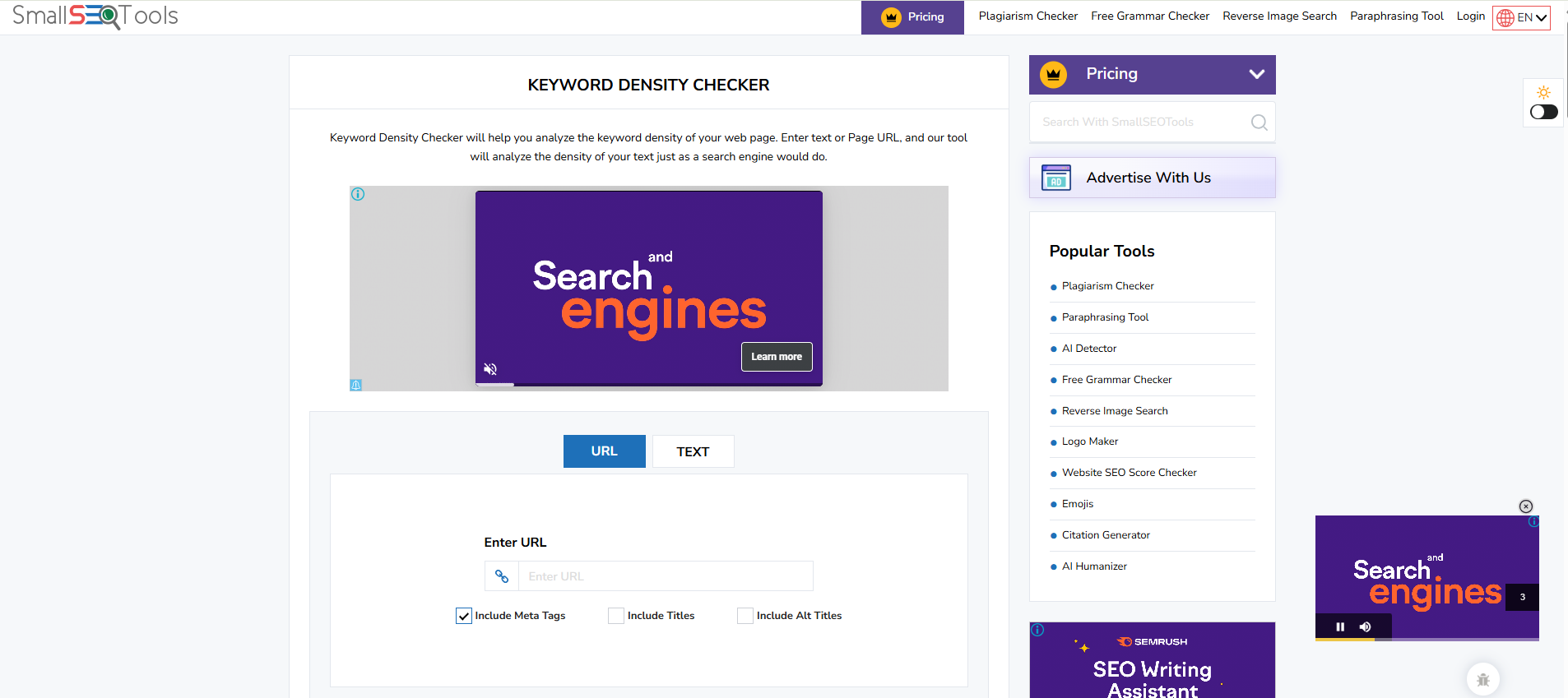
A beginner-friendly tool from the well-known Small SEO Tools platform. It gives a detailed breakdown of keyword frequency, total word count, and keyword percentage.
Pros:
- Easy-to-use interface
- Free to use
- Highlights keyword stuffing
3. Pre Post SEO Keyword Density Tool (Free + Premium)
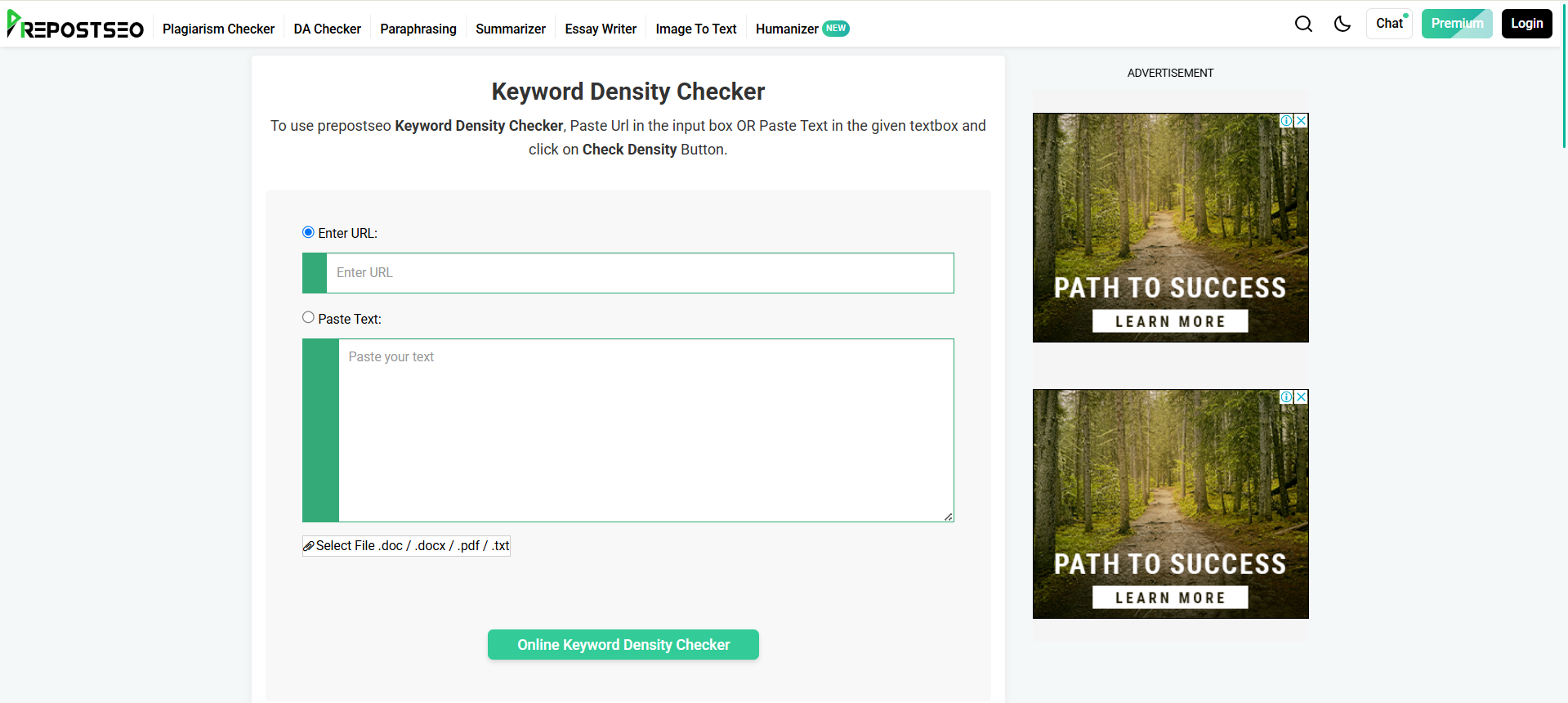
This tool is perfect for writers and bloggers looking for a quick and accurate analysis. It scans your content and detects keyword overuse while offering recommendations.
Features:
- Free with no login
- Accepts content or web page URLs
- Supports multiple keyword tracking
4. WPBeginner – Keyword Density Checker (Free)
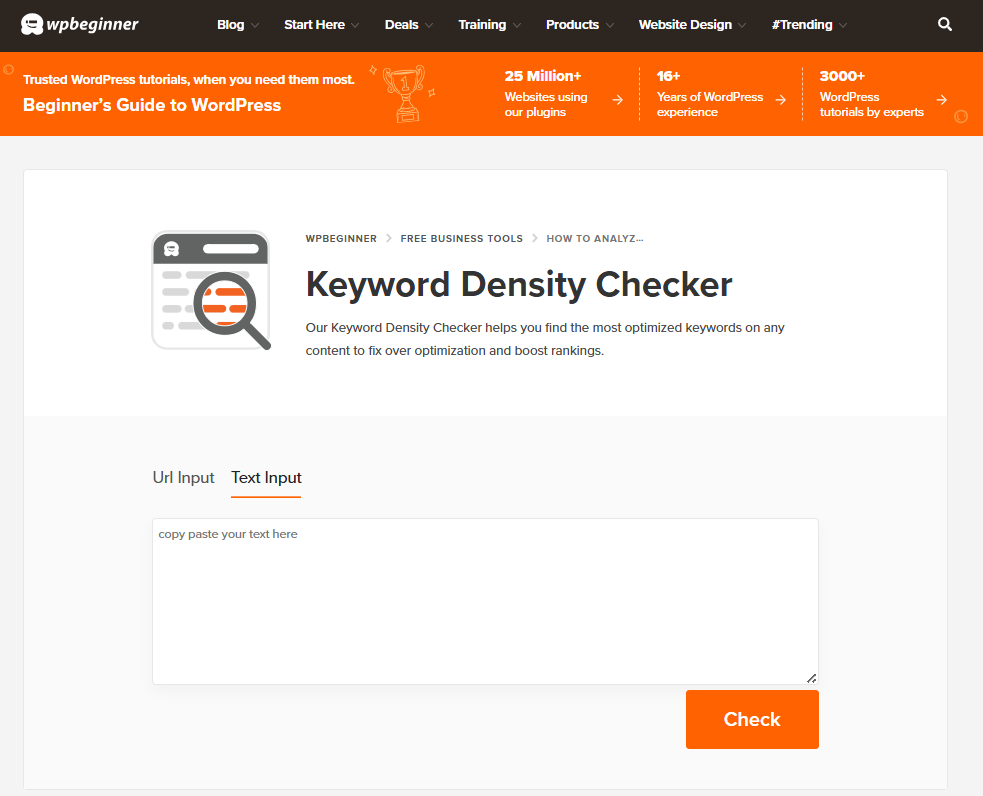
It’s a lightweight tool that helps content creators quickly see how often a keyword appears in their content. Just paste your text or URL, and it scans for single keywords, two-word, and three-word phrases. Great for quick checks without login or sign-up.
Ideal for:
- 100% free with no limits
- Easy to use with instant results
- Supports keyword phrase analysis (1–3 words)
5. Yoast SEO Plugin (for WordPress Users) (Free + Premium)
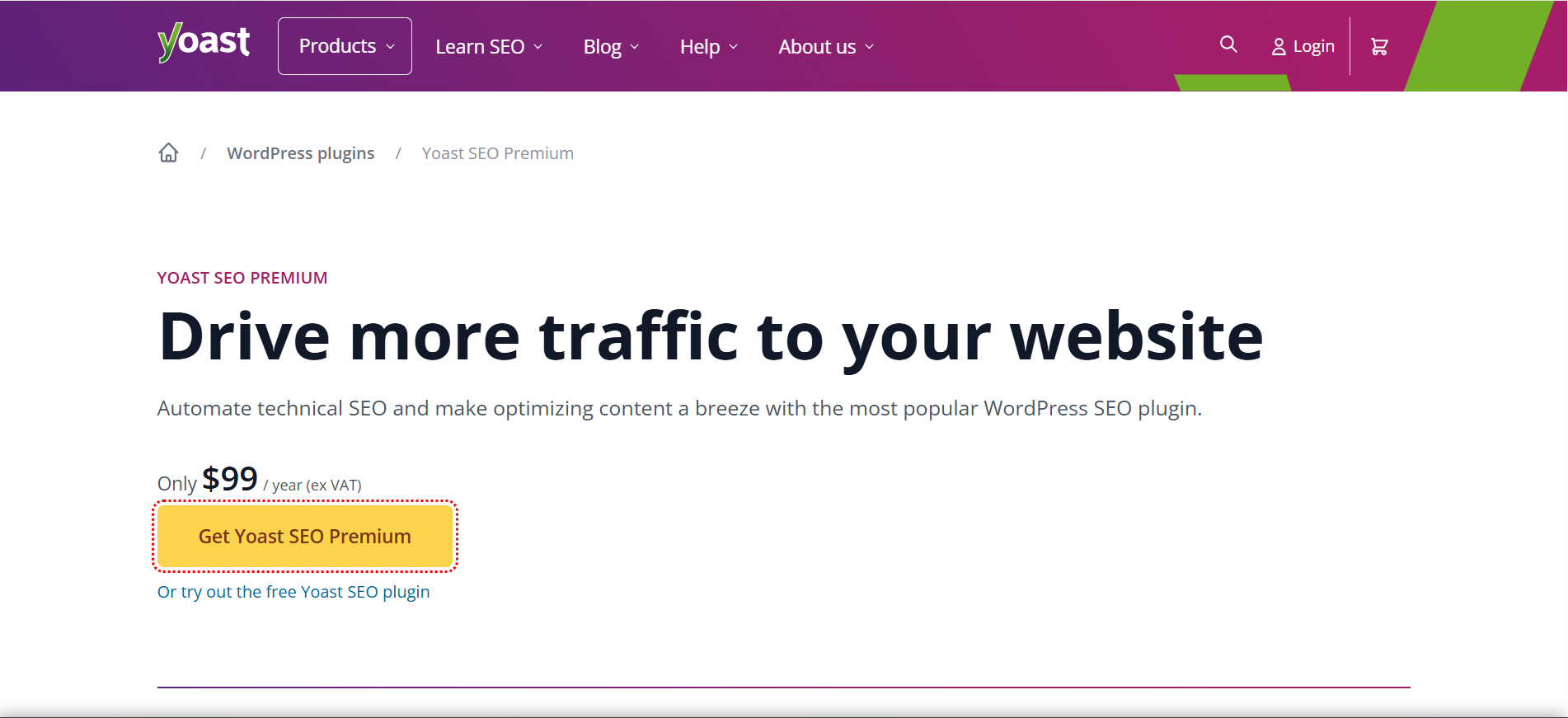
Yoast is a widely trusted WordPress plugin that helps improve on-page SEO by guiding you with real-time suggestions. It tracks keyword density in real-time as you write, ensuring you stay within best practice limits.
Key features:
- Real-time keyword analysis
- Suggestions for better keyword usage
- Visual indicators for SEO and readability
6. Copywritely (Paid with Free Trial)
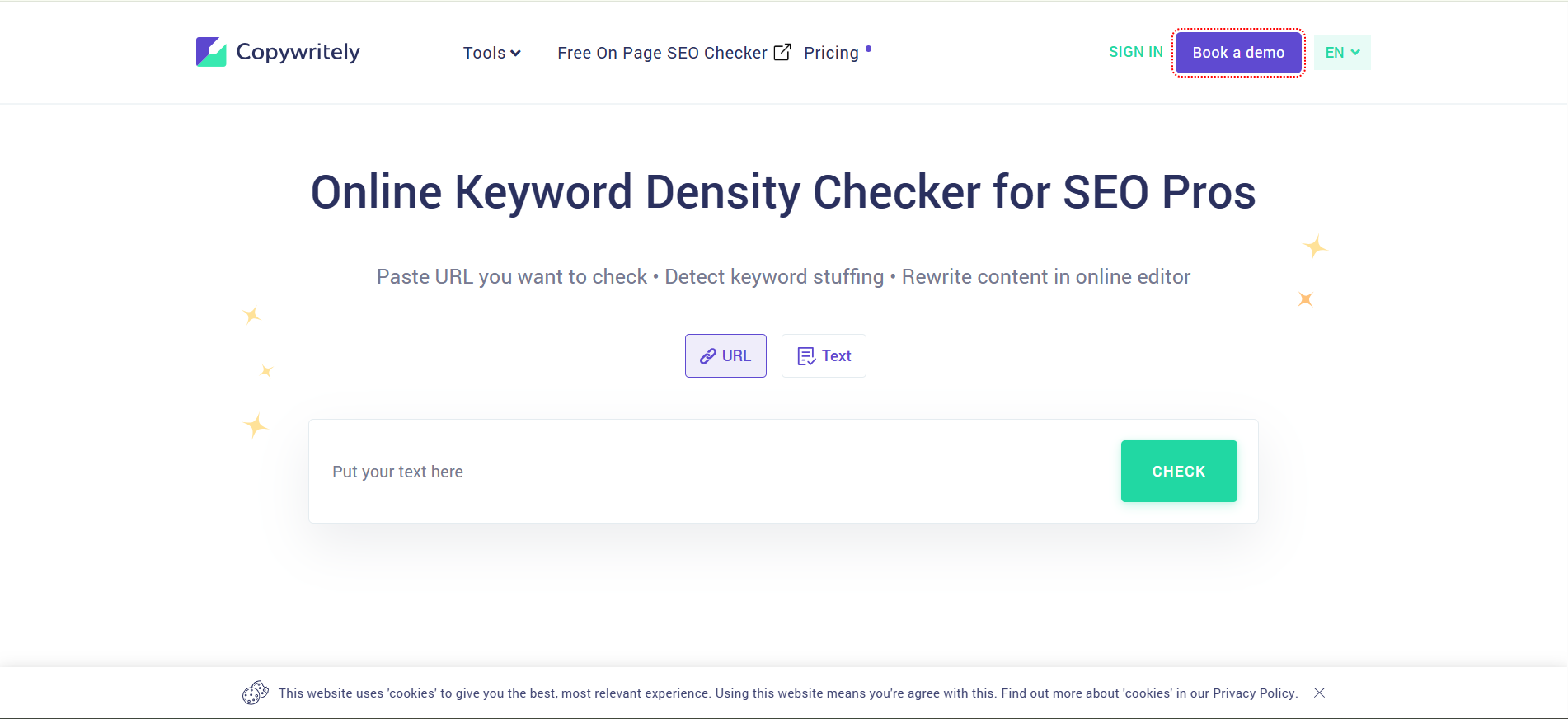
Copywritely helps improve your content by checking keyword density, spotting SEO issues, and fixing grammar mistakes. It’s a premium tool that offers deep content analysis, making it worth the investment for serious content creators.
Best for:
- Freelancers and agencies
- Editing and rewriting tools
- Plagiarism checker included
7. Ahrefs Site Audit Tool (Paid)
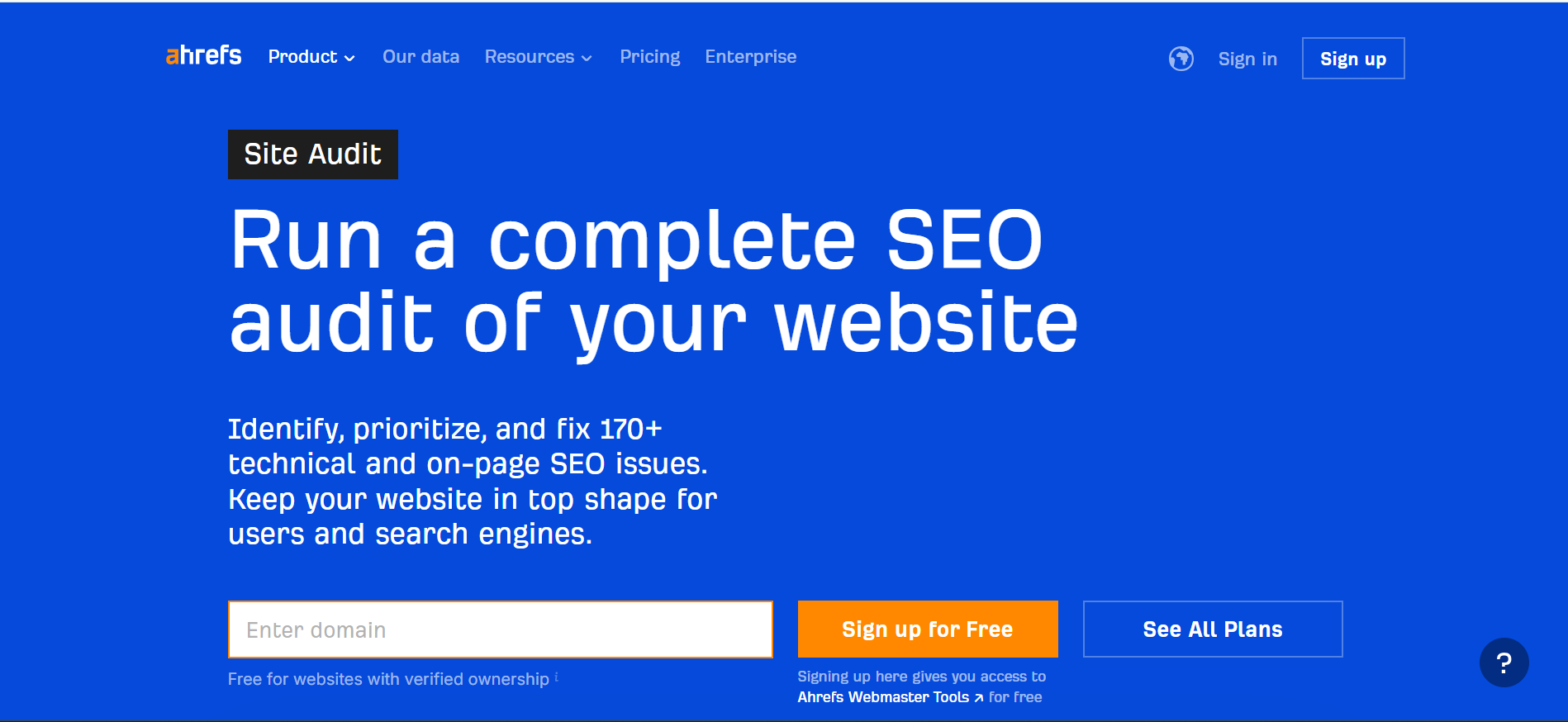
Ahrefs is a full-suite SEO tool that includes a site audit feature with keyword density insights. It’s best for website owners managing large amounts of content.
Key Features:
- Enterprise-level analysis
- Tracks keyword trends
- Helps with keyword cannibalisation and optimisation
Which Tools Do We Recommend?
We suggest using a mix of SEO Review Tools and Yoast SEO. These tools are simple to use, provide accurate results, and work well for both beginners and experienced content creators.
- SEO Review Tools is great for quick analysis and a deeper phrase-level breakdown.
- Yoast SEO is ideal for WordPress users who want real-time optimisation feedback.
For teams managing large websites or professional marketers, investing in Ahrefs or Copywritely can also add value with their extra features.
Frequently Asked Questions
What is a good keyword density?
A good keyword density usually falls between 1% and 2%, keeping your content optimised without overdoing it. The primary keyword should stay within 0.8–1%, which ensures natural flow and effective SEO.
What happens if keyword density is too high?
Keywords play a key role in improving SEO when writing content for the web. But using them too many times, called keyword stuffing, can hurt your website’s ranking instead of helping it.
Are keyword density tools accurate?
Yes, most modern keyword density checkers provide reliable results. While they shouldn’t replace human editing, they help guide better optimisation practices.
Can I use multiple keyword density checkers?
Yes! Using two or more tools can give you a broader view and confirm accuracy. Some tools may count stop words differently, so cross-checking helps.
Can SEO plugins check keyword density in real time?
Yes. SEO plugins like Yoast SEO and Rank Math analyse keyword density while you write in WordPress. They give real-time feedback, making it easier to stay within best-practice limits.
Is it okay to repeat LSI (related) keywords?
Absolutely! Using LSI (Latent Semantic Indexing) or related keywords helps your content sound more natural and improves topical relevance. Tools like Yoast SEO and Surfer SEO can suggest related terms to add.
Do SEO plugins offer real-time keyword density analysis?
Yes. Overusing keywords (called keyword stuffing) can result in penalties from search engines like Google. It makes content unreadable and signals manipulation, which violates Google’s Webmaster Guidelines.








